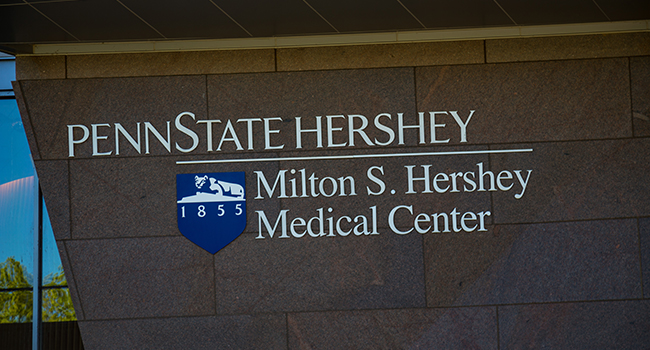
Penn State Medical Center to Arm Security Guards
These new safety and security measures come in light of an increase in violence against nurses and health care workers on the job. This year, Penn State Health has seen two violent incidents.
- By Jessica Davis
- November 02, 2018
Some of the security guards at Penn State Health Milton S. Hershey Medical Center will begin carrying guns in the facility this month. Arming the security guards is one of multiple new security and safety measures aimed at protecting nurses and others from violence inside the hospital grounds.
The medical center’s president Deborah Berini said its security force has been expanded from 18 guards to 30, but not every officer will be armed. The “select group” of armed officers has special training in handling volatile situations as well as ongoing training in firearm proficiency. Berini did not disclose how many officers will be armed at any given time, citing security concerns, but armed security will be present “24-7.”
The decision to arm security guards and add other safety measures is part of “a tremendous amount of work that has been underway for several years” to improve security for staff, patients and visitors, Berini said. Other measures include signs throughout the medical center stating that aggressive behavior will not be tolerated and staffers who are trained in de-escalation of potentially violent situations.
The new signs hung around the center state that “Aggressive behavior toward patients, families, visitors and staff will not be tolerated,” listening examples that include abusive language, profanity, verbal or physical sexual advances and threats. According to the signs, security will be called if offenders don’t heed an initial warning.
Some staff members have been trained in de-escalation tactics for situations where a patient or visitor is upset and may become violent, and the center is creating a behavioral response team of these members. The center is also developing a risk assessment tool to help identify patients and situations that could potentially turn violent.
According to Berini, the new training and safety measures are intended to help hospital workers distinguish between patients and visitors experiencing health-related stresses and those who are genuinely, purposely aggressive. It’s difficult, she said, because illness and medication can sometimes mean patients are not in their right mind.
Berini said the center has created a database for recording incidents related to safety concerns or violence. A manager follows up each report, and there are new efforts to provide longer-term support to affected workers.
“I think people would be surprised by some of the verbal assaults that our staff endures,” Berini said.
These new safety and security measures come in light of an increase in violence against nurses and health care workers on the job. This year, Penn State Health has seen two violent incidents, one alleged attempted rape of a nurse and one physical assault of a nurse that resulted in injuries to the nurse as well as another nurse and a security guard to came to help.
According to recent studies, slightly more than half of hospitals have armed security officers. The increase in armed security coincides with a 40 percent increase in violence crimes in health care settings, with more than 10,000 incidents directed at health care workers between 2012 and 2014, according to a 2016 article from Becker’s Hospital Review.
“I believe they are moving in the right direction,” said Maureen Casey, a Penn State Health nurse who is part of a committee focused on security. “They are looking to us for our input, and they are looking to make wholesale changes to protect the nurses.”
According to Berini, the medical center will be adding more security and safety measures in the next few months, including a “panic button” device that allows workers to call for help. The center also is hiring a consultant to identify technology upgrades to improve security throughout the medical center campus.
About the Author
Jessica Davis is the Associate Content Editor for 1105 Media.